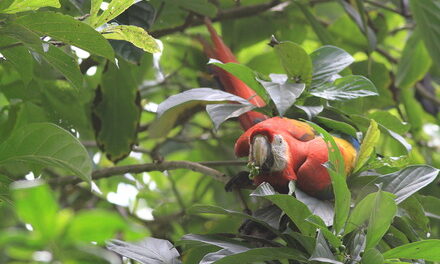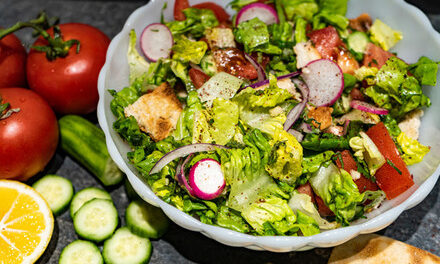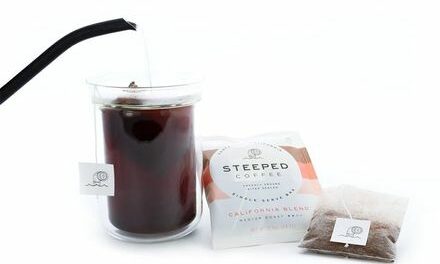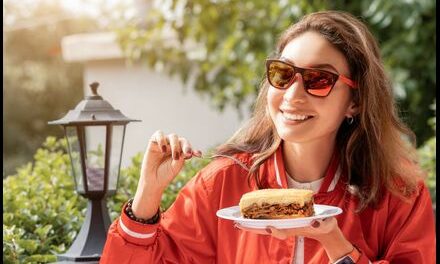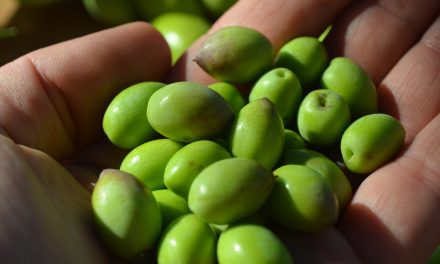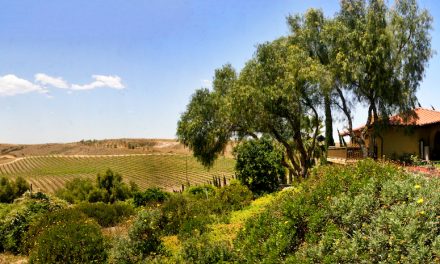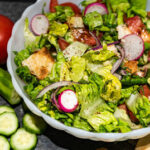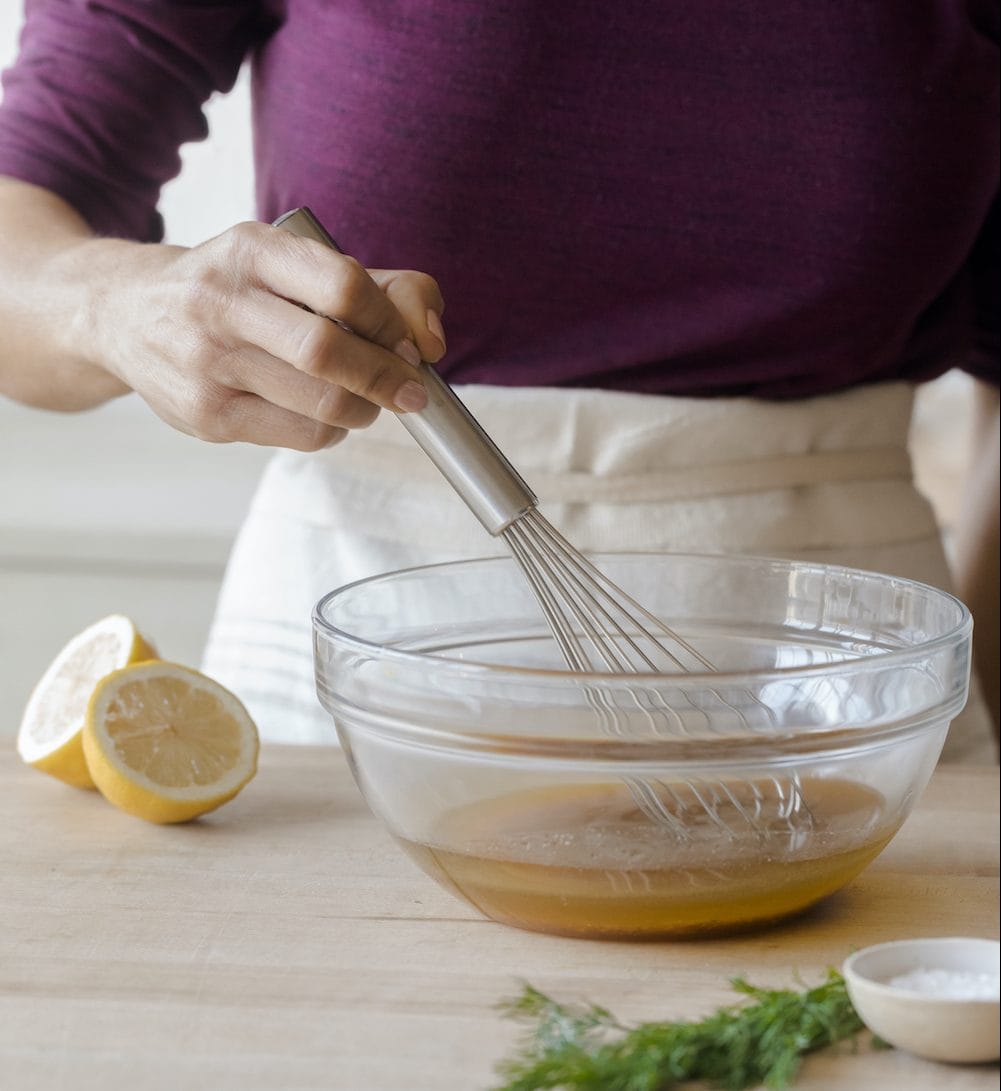
While there’s nothing more “Summertime in America” than firing up the grill to season and cook chicken, beef and fish to perfection, and we will be getting a few notable chefs to expound on the subject. To get this fiery conversation underway, author and food safety advocate Mareya Ibrahim (“Eat Like You Give a Fork”) weighs in on smarter, safer barbecue cooking as well as how the pastime is informed by a particular recipe rooted in her childhood in Egypt: The bison kofta burger.
“While lamb has traditionally used for kofta, I use bison for this recipe because its always free range, resulting in a lean red meat that actually has a ton of flavor and is beautiful when it’s grilled,” says Mareya. “It still has the flavors and aromas reminiscent of those I remember growing up with. As a child, I found those street vendors were definitely Pied Pipers, and you’d follow the aromas that would be wafting through the air until you found the spot where they were grilling…my mouth is watering now as I talk about it.”
Mareya has, in turn taken her childhood memory and used it as a way of communicating to her American-born children the importance of diversifying their palates and tasting a bit of their family history. “This is something that’s a part of their heritage, and while they can equate it with something familiar—the hamburger—what this does is give them something so much better, getting them attuned to more sophisticated flavor profiles. It’s also a good alternative to a beef hamburger for people who maybe are straddling both cultures, as many of us in our community do.”
To create new flavor memories and give the dish a personal touch, Mareya likes to season the bison with garlic, onion, cilantro and coconut amino acids to give it, “a boost of umami.” Other seasonings include ground cumin, smoked sea salt, cayenne pepper and a little black pepper.
“While the bison kofta has so much flavor, it’s also something quite versatile,” she continues. “You can serve it in a lettuce or cabbage leaf ‘cup’ instead of a bread bun if you are entertaining people who are watching their refined carbs. You can also add a toppings bar so everybody can customize their own burger. Toppings can include grilled onions, sliced avocado, feta cheese, cucumber yogurt sauce, ‘quickles’ pickles (recipe below) and even eggplant ‘bacon.’”
As with all home cooked meals, your take on a safe American-Middle Eastern cookout starts when you shop in the grocery store, and Mareya strongly recommends wearing protective gloves when stocking up on the ingredients, especially if you’re going to be choosing foods not in a package. Once you get home, be sure to clean the produce with a specialized cleaner (such as her Eat Cleaner Fruit & Veggie spa, available at eatcleaner.com and many retailers) before you put it away and again before you cook with it. Other benefits of taking proactive extra steps is that the cleaner extends the life of produce and herbs and also aids in keeping entire refrigerators and freezers sanitary.
“The virus is enveloped in a fatty substance, and you can’t really remove fat with water,” she details. “Eat Cleaner is made with a surfactant that’s lab proven to remove these fatty substances so it’s important to do that with a product like ours. Of course, you can never be too thorough, so be sure to wash your hands thoroughly before working with produce and washing your hands again before you touch raw protein like your bison. To fully prepare your grill and make sure that it’s clean, use a cleaning brush to clean off any stuck-on food that can harbor bacteria. When you heat up the grill, let it heat up for a good five minutes at 350 degrees to burn off anything that might be on there.”
With proteins, Mareya suggests marinating your meats in one dish and, once they’re cooked, transfer them to another. Although some home cooks retain the marinade and then pour it over the proteins while cooking, that practice can be a recipe for bacteria-related disaster. If you want to use leftover marinade, first bring it to a full boil first to kill off any bacteria. She also includes using a meat thermometer, as it is hard to judge if a meat is fully cooked simply by its color alone. This ties in with her concerns about eating in restaurants, even when safety protocols are mandated by law and local governments give the green light to return to restaurants with proper precautions.
“When you go to a restaurant, especially nowadays, it’s hard for (management) to actually create an environment that would be considered safe across the board,” Mareya says. “I have noticed cases where (staff) are not correctly using the PPE masks used to stop transmission of bacteria or viruses. When you’re talking about risk and food safety, it’s all about mitigation of the various hazards. The truth is that there’s never a silver bullet for the prevention of contamination. The more factors you add in including the presence of employees and other customers, the harder it gets to ensure your family’s safety. When you’re at home, on the other hand, mitigating that risk a lot easier because you’re the one preparing your family’s favorites. You know how the produce has been washed because you’re washing it correctly, and you can ensure the people eating at your table are also taking precautions.”
Another element of the backyard or home cookout experience that refers back Mareya’s childhood in Egypt is the importance of the family eating and cooking together, where older members of the family can share their thoughts on what makes foods and meal experiences healthy and safe with younger generations.
“Nobody ate alone,” Mareya says regarding her recollections of food and family. “Everybody always ate together. There were always at least eight people at the table. This idea of taking time to actually sit at the table and break bread in the company of others is a huge part of our health, and not just from an emotional standpoint. You tend to consume an average of 30% fewer calories when you eat with other people…and the food is just so much more enjoyable.”
Bison Kofta Burgers
Mareya Ibrahim, “Eat Like You Give a Fork”
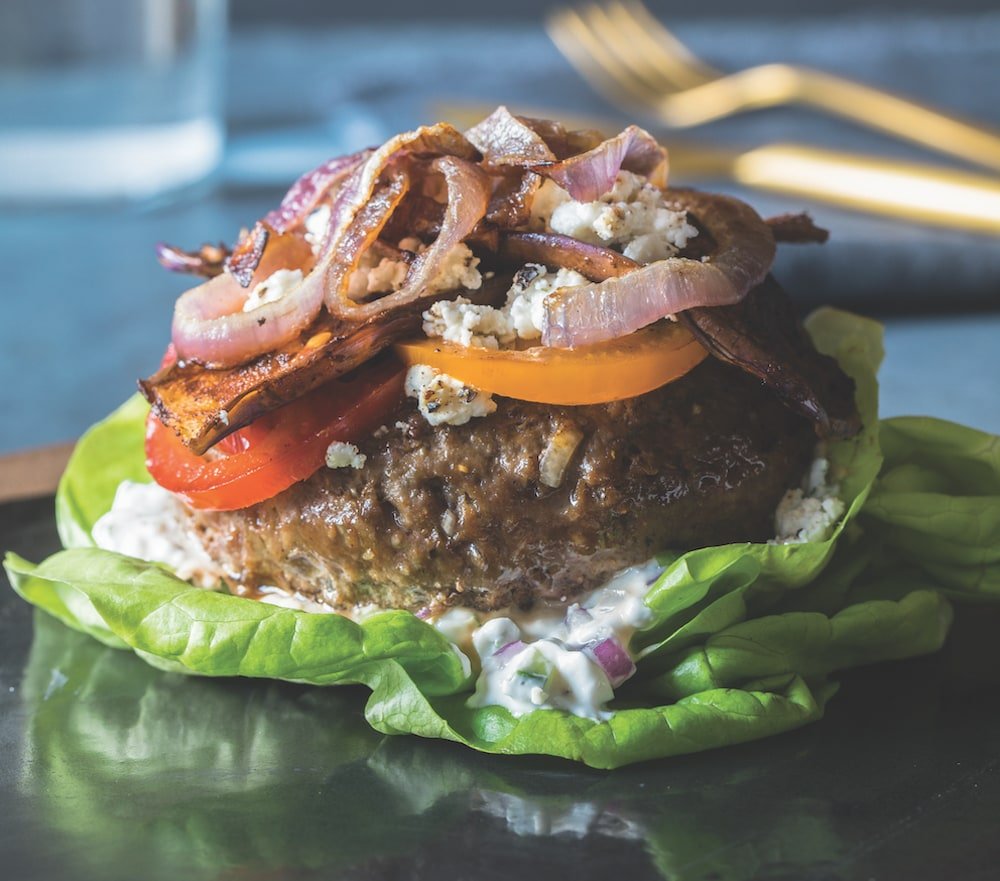
-
3 garlic cloves, minced
-
3 tbsp finely minced red onion
-
2 tbsp finely minced fresh cilantro
-
2 tbsp coconut amino acids or tamari
-
1 pound ground bison or grass-fed beef
-
1 tbsp ground coriander
-
2 tsp ground cumin
-
1 tsp smoked sea salt
-
½ tsp cayenne pepper
-
½ tsp freshly ground black pepper
Optional Toppings:
-
Grilled onions
-
Sliced tomato
-
Quickles (see below)
-
Lettuce
-
Sliced avocado
-
Feta cheese
-
Yogurt sauce
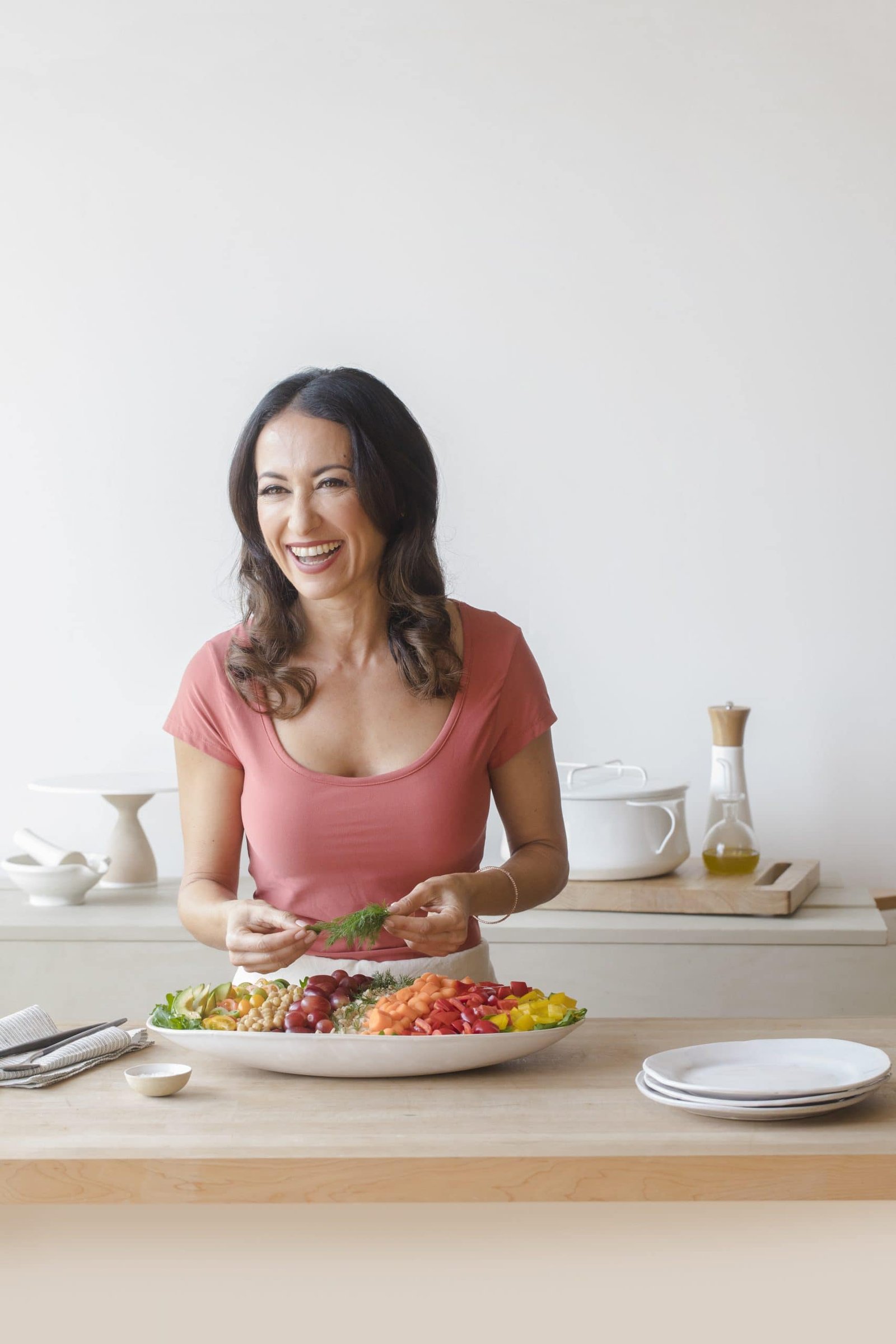
Heat a grill to medium.
In a large bowl, stir together the garlic, onion, cilantro, and coconut aminos. Add the ground bison and mix with clean hands to combine. Add the coriander, cumin, salt, cayenne, and black pepper and mix until evenly distributed.
Form the meat mixture into 3½- to 4-inch patties, about ½ inch thick.
Grill for 6 to 7 minutes on each side for a medium- well burger, or to your desired doneness. Be sure to use a meat thermometer to be sure everything is cooked correctly.
Serve with the toppings of your choice. I like to serve the toppings set up in a little ‘salad bar,’ so everyone can customize their own burger.
‘Rainbow Veggie “Quickles”
Mareya Ibrahim, “Eat Like You Give a Fork”
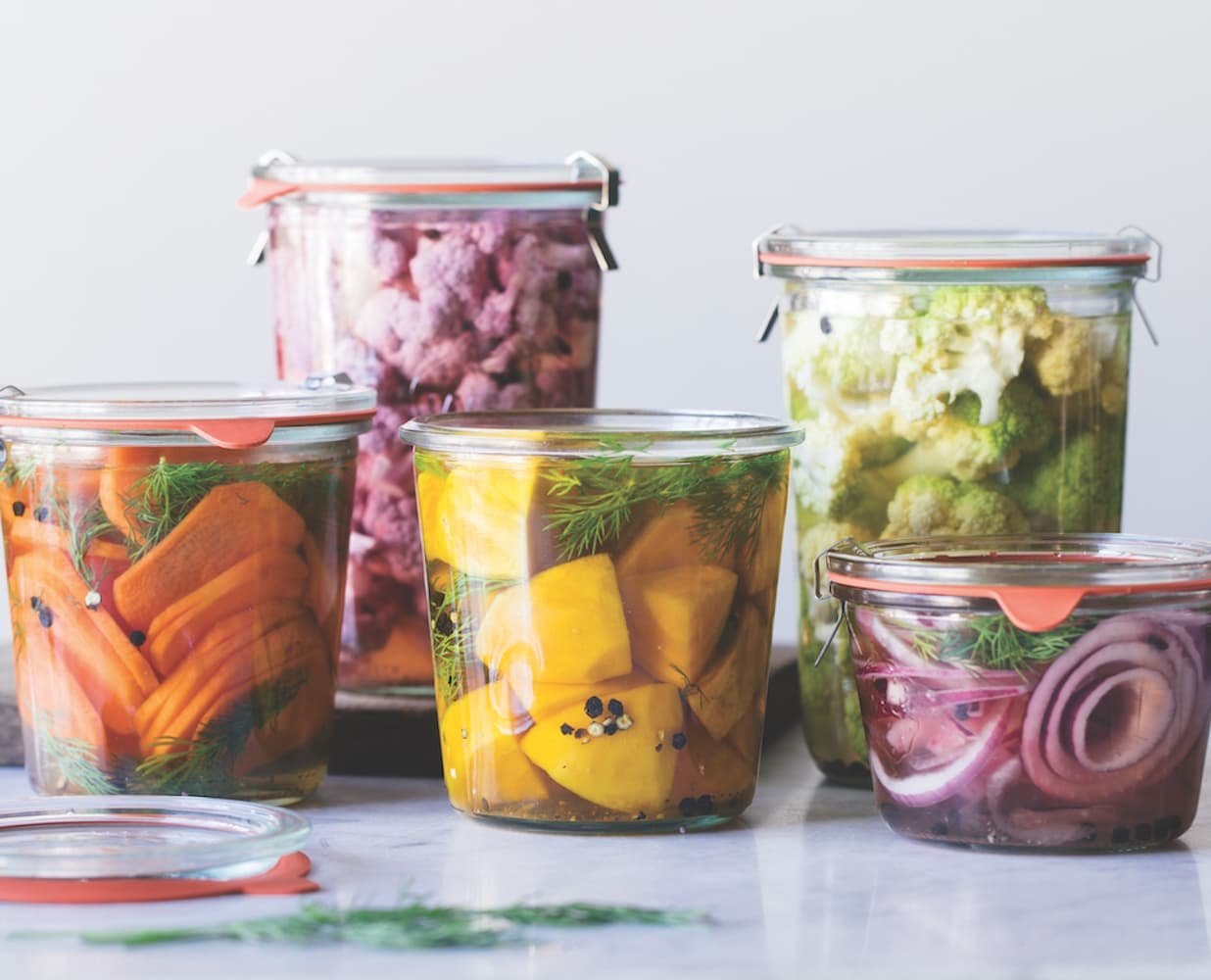
“Quickle” Juice:
-
3 cups raw unfiltered apple cider vinegar
-
1 tbsp whole black peppercorns
-
2 tbsp fresh dill leaves
-
2 tsp sea salt
-
1 tsp granulated stevia
Vegetables:
-
1 onion, quartered and thinly sliced
-
2 cups small cauliflower florets (use a mix of purple and green cauliflower for fun color)
-
2 carrots, sliced on a mandoline or cut into 1⁄4-inch- thick slices with a knife
-
1 cup small-diced yellow or red beets
Mareya’s Note: “These quick-pickled veggies that I affectionately call ‘quickles’ are ready to eat in less than an hour but get better with time. Pickled veggies are a big part of my upbringing, and one of my favorite things to keep in the fridge to complement just about every meal. The addition of sour pickled prebiotic probiotic goodness will really start to shift your gut health, and the multicolored veggies are the best way to make sure you’re eating the rainbow. Don’t be surprised if you see a unicorn or two.”
Make the ‘quickle’ juice: In a medium saucepan, combine all the quickle liquid ingredients with 1 cup water and bring to a boil.
Place each vegetable in a glass jar with a lid. Pour enough quickle liquid into each jar to cover the vegetables completely. Let cool to room temperature before sealing the jars.
Store the quickles in the refrigerator for up to 2 months. Make sure to keep the jars sealed airtight for maximum freshness and use a clean fork or spoon when removing quickles from the jars.



